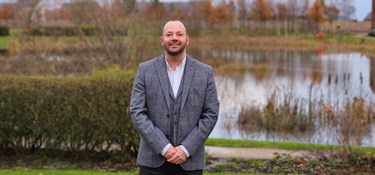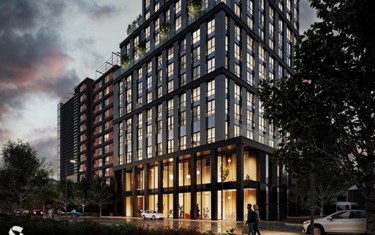 Mark Hand is Director of Wales, Northern Ireland, and Planning Aid England at the RTPI
Mark Hand is Director of Wales, Northern Ireland, and Planning Aid England at the RTPI
As a profession, we Planners are not great at shouting about our achievements. We spend much of our time hoping our efforts are welcomed by a silent majority. With social media seemingly providing an expanding platform to a relatively small number of very vocal critics, assumptions and misinformation fill the void. It is ironic that 1st April seems to be the only day of the year that some people actively question what they read or hear. It is time we spoke up and encouraged others to do the same.
Reports published in 2022 by the NI Audit Office and the Public Accounts Committee both concluded there were significant shortfalls in the delivery of the planning service across Northern Ireland. The RTPI NI’s Big Conversation survey in 2023 revealed a profession that is feeling brow-beaten by seemingly constant criticism and an increasingly complex yet under-resourced planning system. In that context, it can be difficult to find the time or energy to take a step back and reflect on what is going well and why we’re bothering. The RTPI’s State of the Profession report explored the composition of the Planning profession across the UK and the challenges facing us, with various projects underway to seek to address the findings. More on that another time.
Our ‘why’
When up to your eyes in the day-to-day churn, it can be easy to forget just what Planning is achieving and why what we do is important. Whether you grew up always knowing you wanted to be a Planner or, like me, stumbled across Planning, what drew us all to this profession is the desire to make the world a better place. Planning plays a crucial role in delivering a wide range of valuable outcomes: addressing the climate and biodiversity emergencies, enabling economic development and supporting communities across Northern Ireland.
As one respondent to the RTPI NI Big Conversation said:
“NI has great people who are extremely capable, bright, intelligent and resourceful. We need to make much greater use of this pool of talent, empowering planners and giving them confidence to do their jobs effectively.”
If you’re still not persuaded about the value of what you’re achieving, take a moment to look at what happens when Planners are not involved, as illustrated by the Town and Country Planning Association’s photobook These Are Homes. In 2013, the Westminster Government introduced extensive ‘permitted development rights’ in England. This de-regulation allowed commercial and industrial buildings to be converted into “homes” without the need for planning permission. The result has been some truly shocking examples of poor quality and inappropriately located accommodation that many would argue is unfit for human occupation.
The increasing importance of planners
The reality of climate change, the ongoing housing crisis, and pollution affecting some of Northern Ireland’s rivers and loughs are just three reasons why our role as Planners is more important than ever. The future needs us! Via Local Plan zonings, we can ensure that new development is well-connected and sustainably located, reducing the need for car-based travel. Via high quality design and Local Plan policies, we can ensure that new homes are low carbon, reducing both environmental impact and the cost of living for future occupiers. Via S.76 agreements, we can ensure development is accompanied by essential infrastructure improvements.
So this is a rallying call. Is everything we do perfect? No. Are the conditions we work in perfect? No. Let’s continue to work collaboratively to improve those areas. But let’s also be proud of what we’re achieving as a profession. Later this year, we’ll be celebrating some of those achievements via the Planning Excellence Awards. If you didn’t get around to nominating a project this year, why not make a start on a nomination for 2025?
In the meantime, be proud to be a Planner: we’re a positive force for change.


